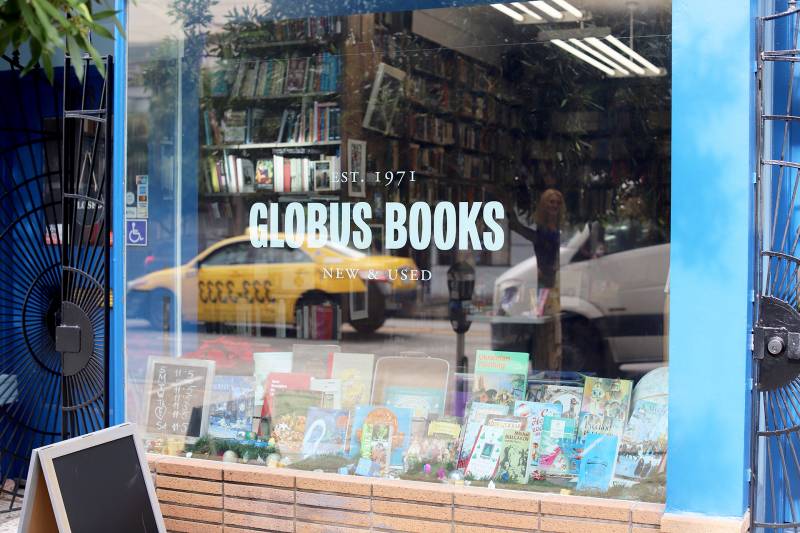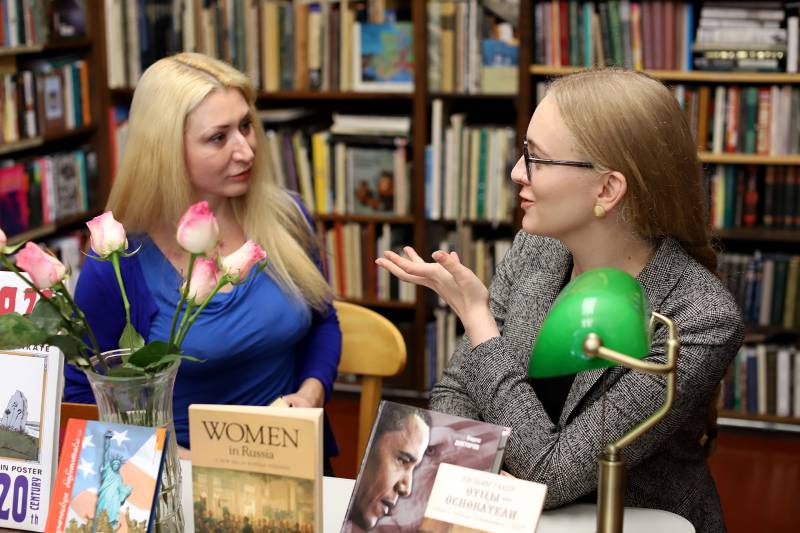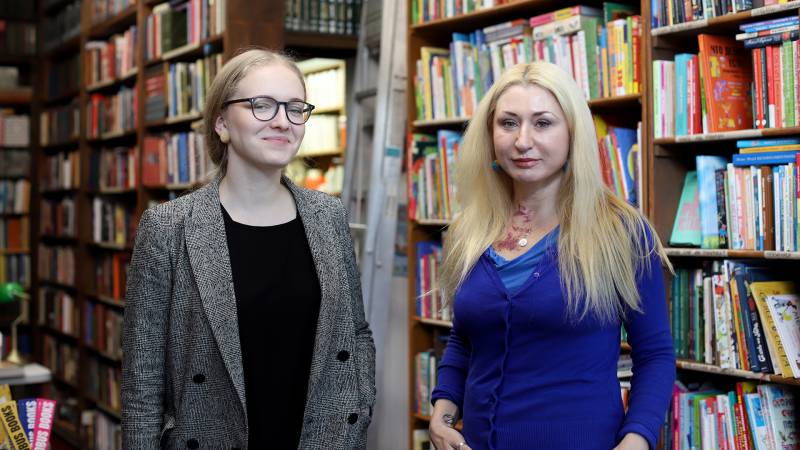Like many Russian immigrants who came to the Bay Area in the 1990s, my childhood was full of weekly pilgrimages to San Francisco’s Richmond District. On Sundays, my family and I would get dressed up to attend Russian Orthodox church on Geary Street, buy olivier salad and pickled cabbage by the pound at New World Market and take in the aromas of pirozhki and other baked goods at Cinderella Bakery.
With bellies full, we’d stroll down Balboa Street to Globus Books, the Russian bookstore that feels like a time capsule, with its Persian rugs, towering shelves of dusty tomes and a distinctive old-library scent. As a child, I delighted in Soviet-era picture books like Dyadya Fyodor, about a precocious boy who runs away from home to live with a dog and cat. In my teen years, I explored intimidating stacks of classics by Dostoevsky and Bulgakov, and art books from the Hermitage Museum of my native Saint Petersburg. And in my early twenties, I tripped out on Victor Pelevin’s drug-addled, darkly funny Gen X novel Generation P (the P standing for pizdetz, or screwed).
Globus, opened in 1971, has remarkably stood the test of time, serving several generations of Russian immigrants, including those who came as Jewish refugees during the ’70s and ’80s, and the rest that followed after the collapse of the Soviet Union in 1991.
Yet as the Richmond District changes, and as the Russian community gets priced out along with other immigrant populations in San Francisco, the decidedly niche business has found itself in need of switching up its approach as it enters a new decade, hoping to preserve its older generation of customers while attracting younger readers and non-Russian speakers.

For new owner Pavel Chepyzhov and managers Julie Kulyamzina and Zarina Zabrisky, that means embracing the diversity of the Bay Area’s Russian-speaking community, as well as people curious about Russian culture and literature.



